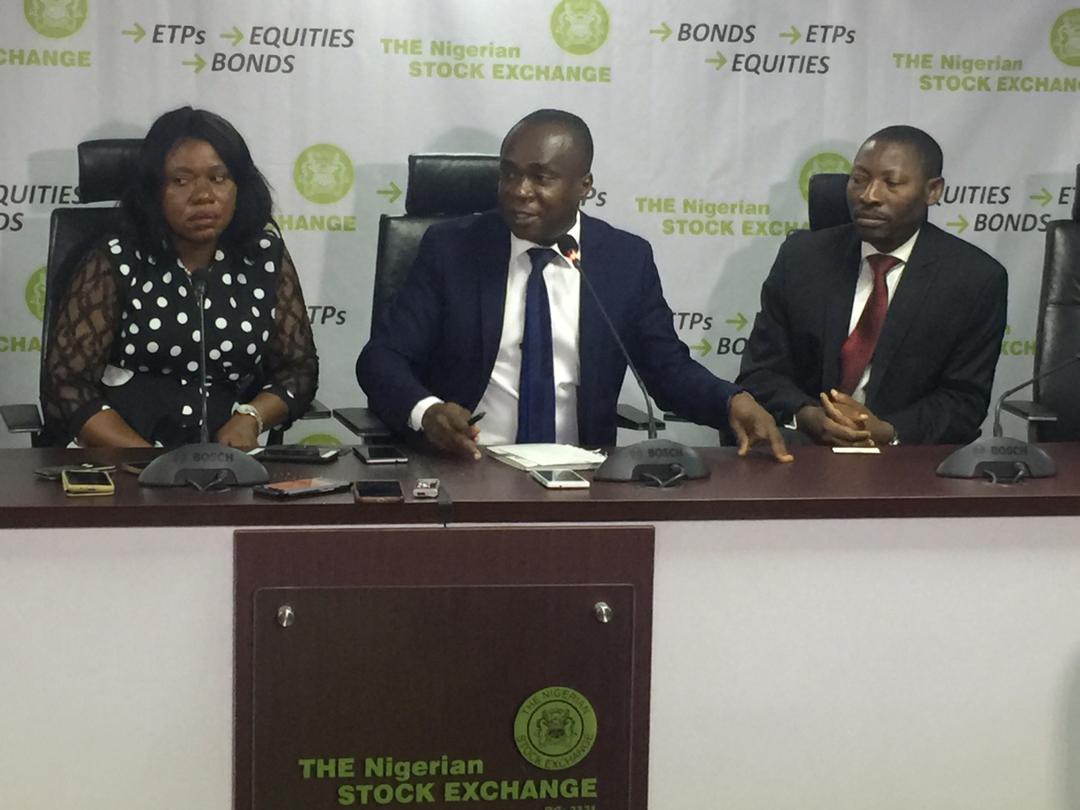Professor of Finance & Capital Market, and head, Banking and Finance Department, Nasarawa State University, Keffi, Prof. Uche Joe Uwaleke has advised Nigerians to take advantage of prevailing low prices of stocks in the Nigerian Capital Market in view of opportunities that come with market reversal commencing at the end of the second quarter of the year.

He was speaking at the Capital Market Correspondent’s Association of Nigeria (CAMCAN), quarterly forum yesterday when he unveiled higher earnings opportunities in the Nigerian stock market expressing optimism that the stock market would rebound in the third quarter.
Uwaleke, who lectured on the theme ‘Stock Market in the first quarter 2019 and post-election prospects” said that that the Nigerian Stock Market which ranked as the world’s third most rewarding Market in 2017 and became bearish subsequently, is poised to enter into another bullish era.
On the factors that will drive the Market in the third quarter, Uwaleke said that unfolding internal and external factors would impact the equities market positively.
He explained that swearing in of the newly elected president and early constitution of cabinet members, lowering Monetary Policy Rate (MPR) by the Monetary Policy Committee (MPC), increase in minimum wage, increase in oil price and continued stability in foreign exchange (FX) would impact on the market.
Uwaleke who also doubles as President of the Chartered Institute of Bankers of Nigeria (CIBN), Abuja branch, listed other factors that will drive stock market’s reversal in third quarter to include, continued moderation in inflation, steady growth in Nigeria’s Gross Domestic Product (GDP), early signing of 2019 budget and implementation, improved growth in the non-oil sector amongst others, adding that
“All these projections are higher than what we saw in 2018”. The NSE is really waiting for SEC to finalise the rule for the derivatives to be introduced, it will give investors room to hedge risks”, Uwaleke said.
He also said that the planned introduction of derivative instruments in the market by the Securities and Exchange Commission (SEC), of which preparations have reached advanced stage at both SEC and the Nigerian Stock Exchange (NSE), would help investors both foreign and indigenous investors to hedge their investments.

According to him, the expected listing on the NSE, by MTN, is expected to boost market liquidity, diversify offerings as the company will become the second most capitalized company in the market, after Dangote Cement Plc.
He added that the Nigerian Pension Commission (PENCOM)’s six multifold structure rule expected to boost PENCOM’s investment in the equity market, as well as the margin lending rule, currently being worked on by the SEC and efforts at deepening domestic investors participation in the market were some of the measures expected to driver early market reversal in Netherlands third quarter.
Speaking on how minimum wage increase will impact positively on the market, he said
“This is the time to take position, the minimum wage will be positive for the capital market, inflation is caused by weak aggregate demand, but new minimum wage will rather boost aggregate demand, driven by greater number of people having more disposable income and also money to save.”

He said that it is unlikely for the Country to witness another economic recession as the factors that contributed to the recession in 2016, are currently none existent.
“Crude oil price is not bad today, external reserve is healthy, inflation rate at 11 per cent is healthy” he said.
Speaking on some external factors likely to drive market reversal in Q3 2019, Uwaleke listed, crude oil price, declining trend of yield in the US which will likely bring about capital flow to emerging markets, Easing US—China trade tension , and easing Brexit tension, amongst other factors will impact Nigeria’s market positively.
He noted that the market closed the 1st of the year on a bearish note as a result of factors which he termed ‘systemic risk and non-systemic risk’.

“The non-systemic risks are risks associated with the operations of the companies, a risk that is particular to a company and doesn’t affect other companies. Non-systemic risk contrasts with systemic risk, which is risk that applies to all companies in a market or industry and doesn’t affect other companies, while systemic risk, affects all companies in a market or industry,” he said.
Professor Uwaleke also attributed the Q1 2019 market decline to have been caused partly by rebalancing of portfolio, movement form equities to fixed income, herding behaviors’ of investors, flight for safety by foreign investors, panic by investors, among others.
















Cialis Culturismo Pillola Argento Priligy online cialis Rx Legitimate Online Pharmacy Viagra And Cialis Online Order Find Doxycycline Best Website